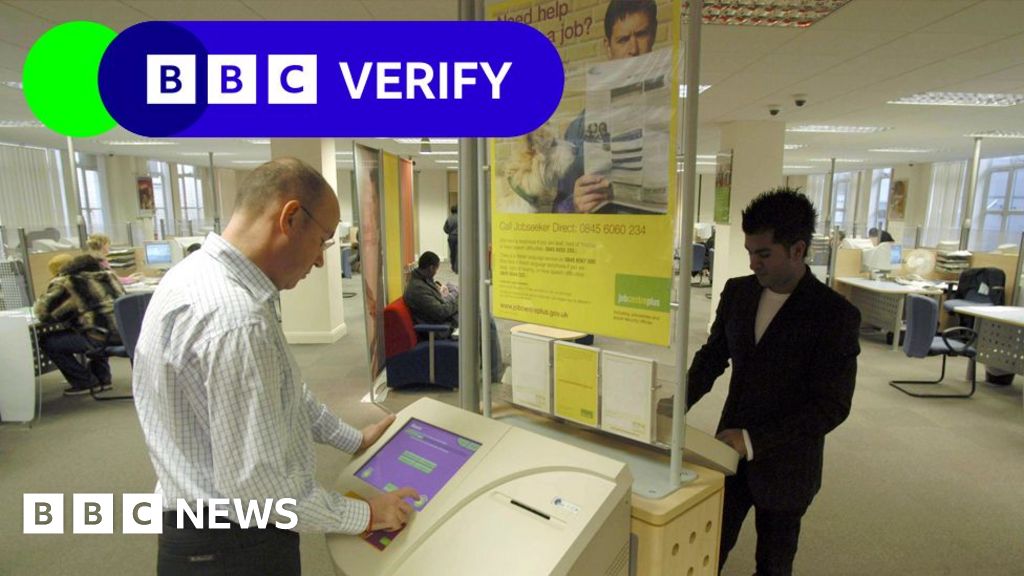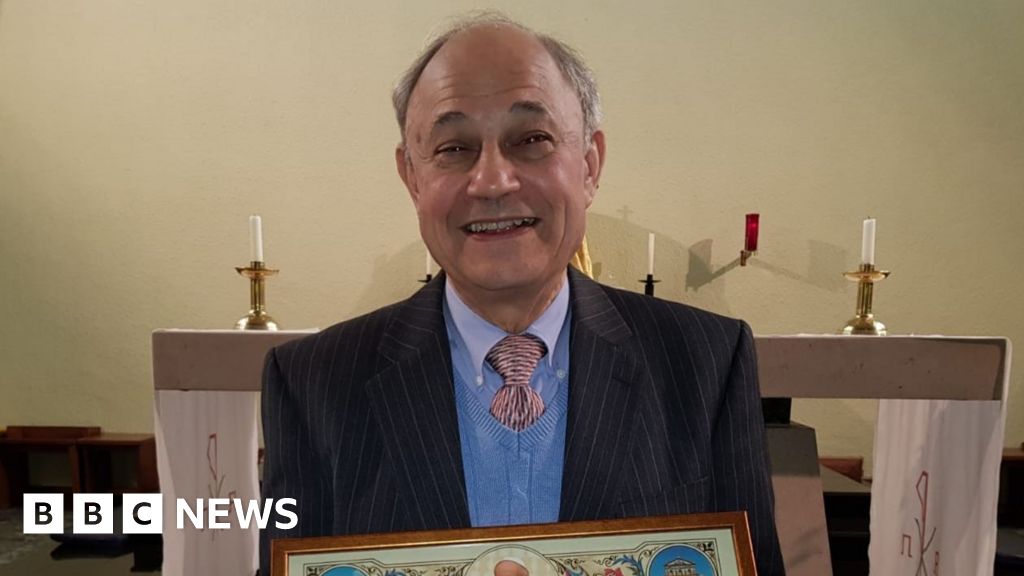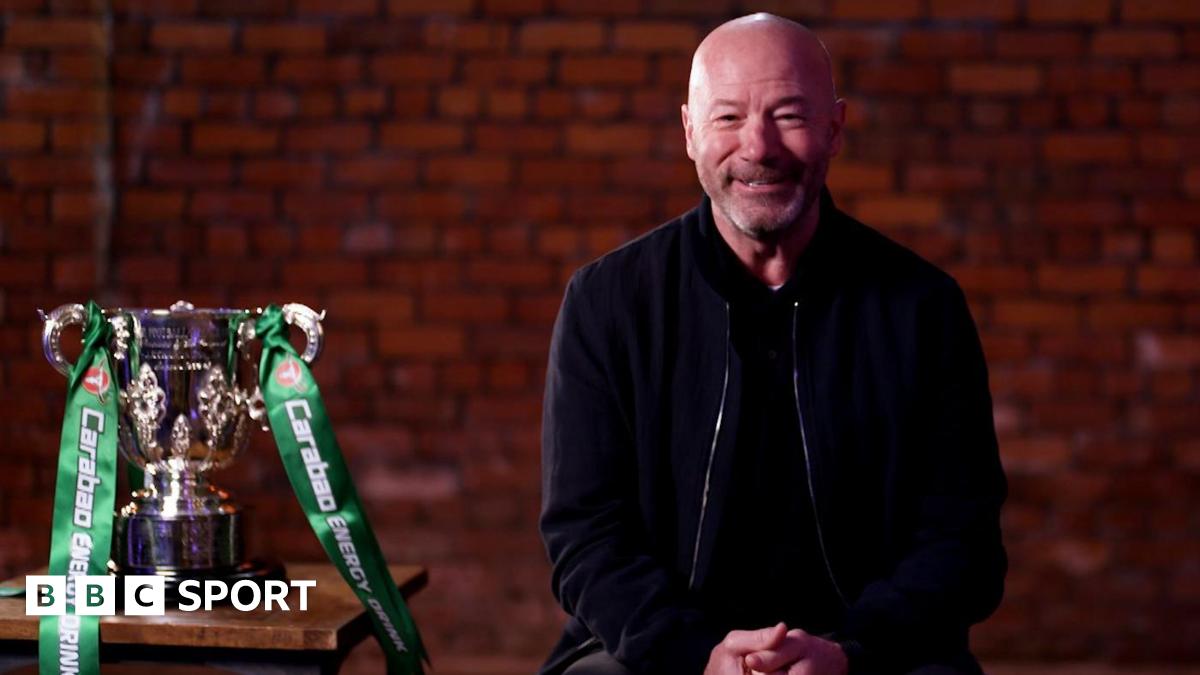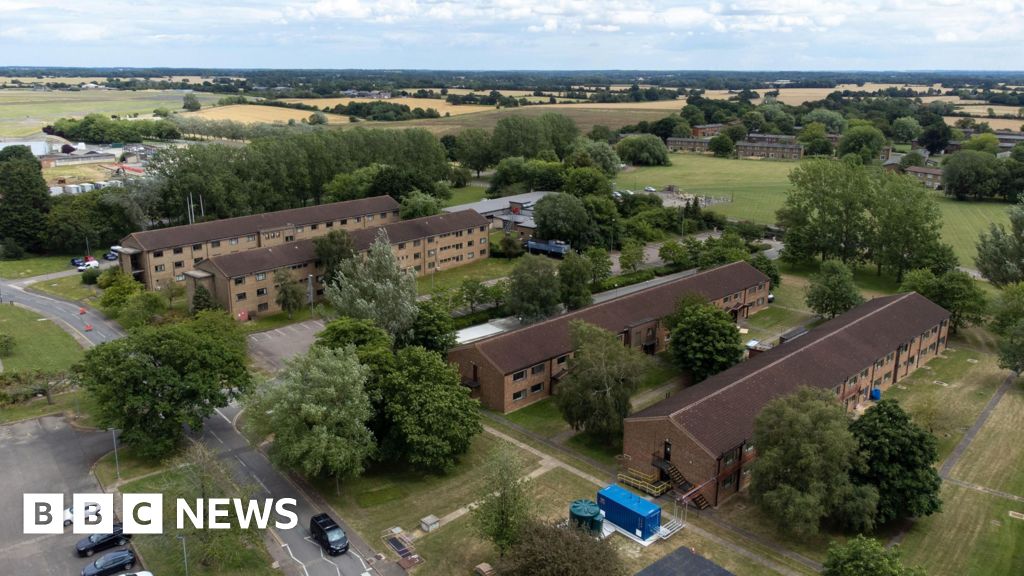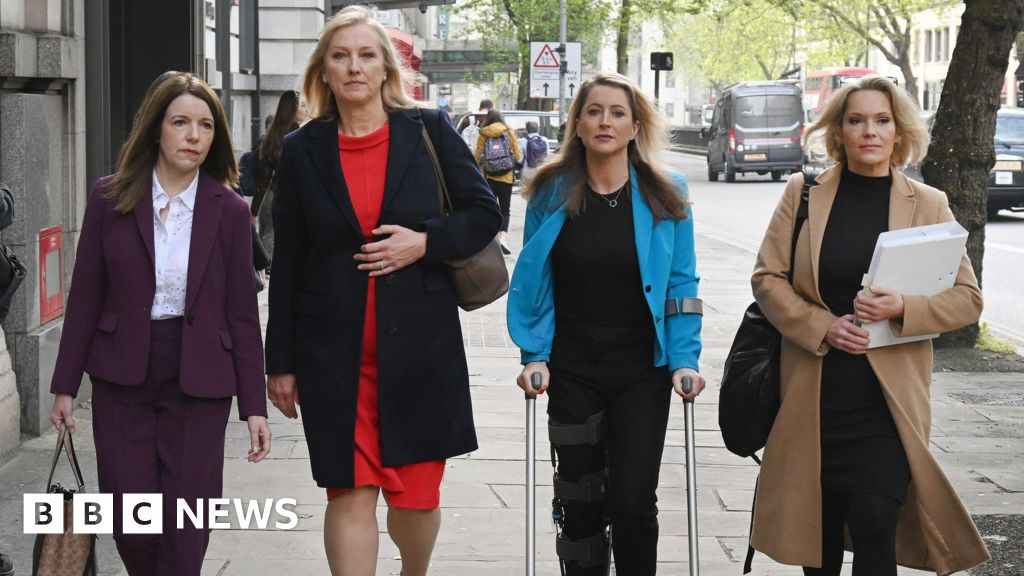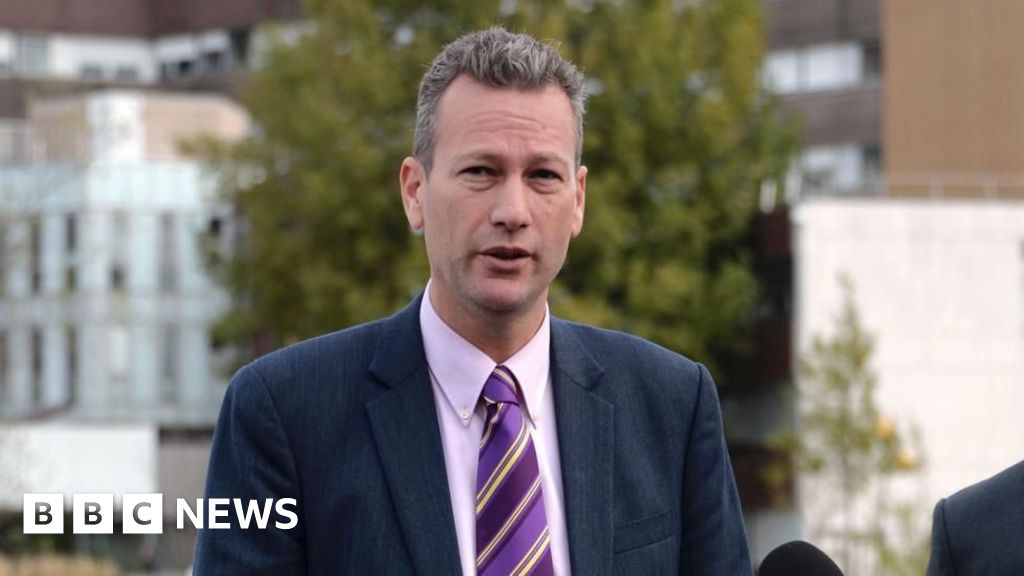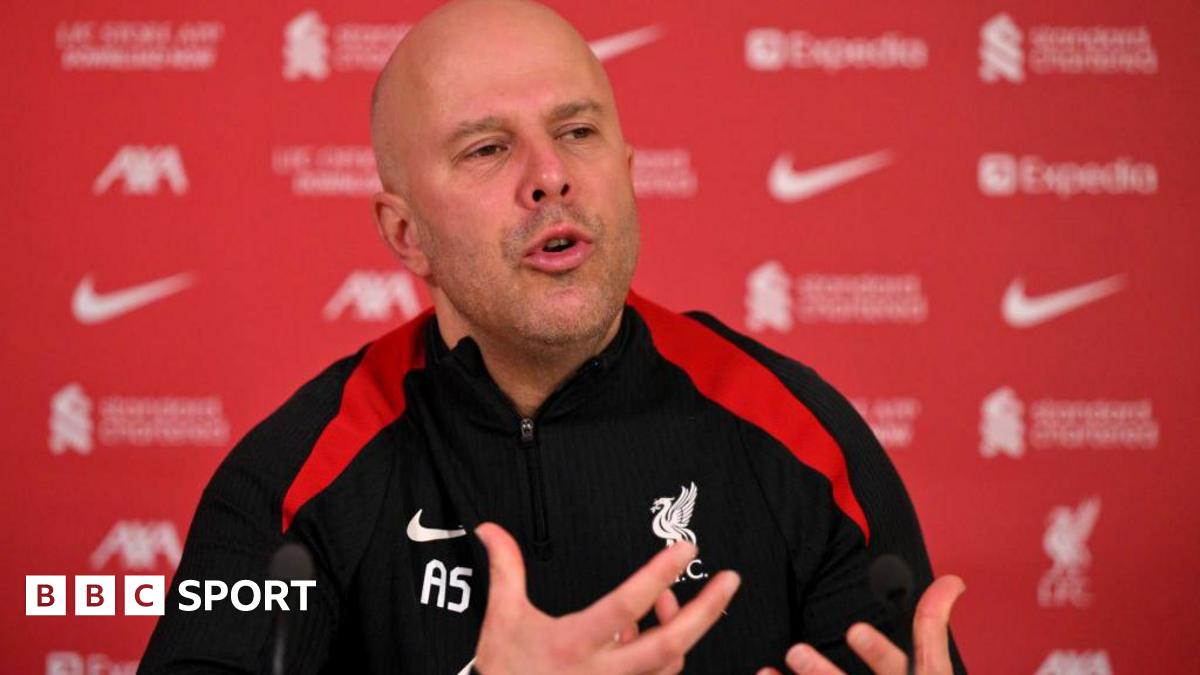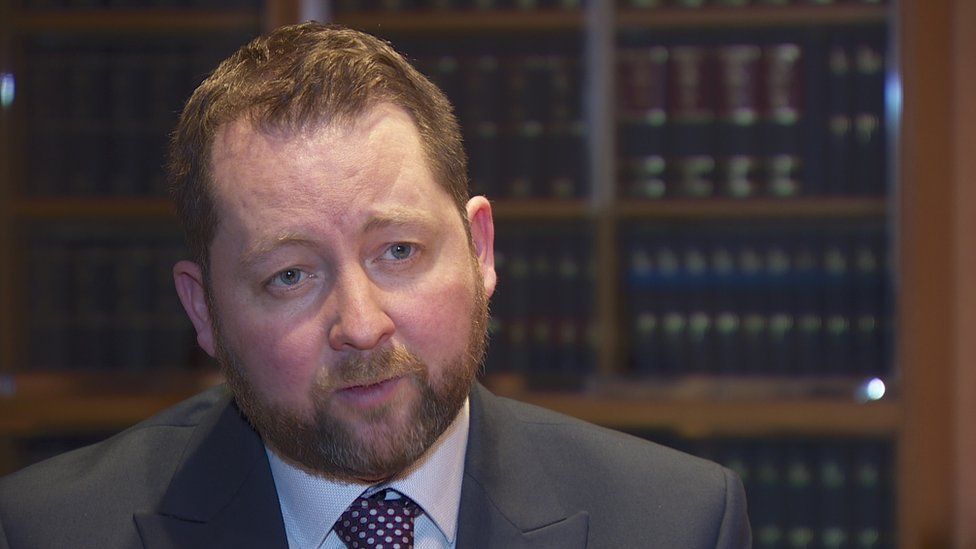
Eddie Lynch has been critical of the treatment of elderly people during the pandemic
By Julian Fowler & Marie-Louise Connolly
BBC News NI south-west reporter
A decision to discharge residents back into care homes during the pandemic without testing them was "reckless", the Covid Inquiry has heard.
Commissioner for Older people Eddie Lynch was speaking on day two of the public hearings in Belfast.
Mr Lynch said there was a feeling that hospitals were being "cleared out" for a "possible surge" in patients.
He said that NI was not prepared for the pandemic and that "we were all dealing with something entirely new".
Mr Lynch said the consequences of moving people into care homes needed to be looked at.
'Disastrous'
"It was quite reckless a decision to take to allow that to happen," he said.
"I was very concerned and so were the care home providers that those people were put into those settings without testing.
"It was very clear that the policy of discharging people without testing into those settings was a potentially disastrous one," he added.
Mr Lynch said his office was contacted by concerned families and his team often felt "frustrated" that they could not get answers quickly enough.
When asked by the Chair, Baroness Heather Hallett, what could be done in the future, Mr Lynch said the introduction of visiting pods and safer spaces for families to meet loved ones needs to be expanded and put in place earlier on.
As of March 2021, Northern Ireland had an over-60s population of just under 440,000 or about 23%.
Image source, PA Media
Image caption,Bereaved families stood outside the Belfast hotel where the inquiry is being held on the first day of hearings
Later on Wednesday, the Covid Inquiry is to hear from a former senior civil servant who said Stormont ministers had not shown strong leadership during the pandemic.
The comments were revealed in communications published as part of the inquiry on Tuesday evening.
It heard how political dysfunction and a legacy of mistrust at Stormont had hampered preparedness.
The inquiry has published more than 200 documents including minutes of meetings, briefings, and guidance, as well as emails and messages being exchanged by senior officials.
Sir David, who was head of the Northern Ireland Civil Service, wrote that even in a crisis ministers seemed keener on scoring points off each other rather than helping the citizen.
He said ministers had been "too quick to retreat into campaigning or community activist mode".
He said when they did have to make difficult decisions such as school closures and defining "essential" businesses they had been found wanting.
And he concluded: "I can't even begin to imagine how our local politics will play out when this ends."
The minutes of Executive meetings reveal arguments between ministers led to delays in forming and delivering policy.
Stormont ministers "going round in circles"
In one meeting in October 2020, Northern Ireland's chief medical officer, Prof Sir Michael McBride, warned the health service was 10 days away from being overwhelmed.
He said if the Executive did not make decisions on extending the lockdown it would result in significant numbers of deaths.
Yet the following month, one meeting continued over four days with ministers "going around in circles" trying to reach a compromise on restrictions.
The minutes, recorded in 122 pages of handwritten notes, reveal the then economy minister Diane Dodds argued that lockdowns do not work.
Justice Minister Naomi Long described the use of cross-community voting as a sectarianisation of the situation, while the then finance minister Conor Murphy accused health minister Robin Swann of not bringing clear recommendations or advice to the Executive.
Image source, PACEMAKER
Image caption,The chief medical officer played a prominent role in NI's Covid response
Other documents reveal that Northern Ireland was unprepared for an unforeseen emergency.
Staff in the Civil Contingencies Policy Branch had been reduced because of austerity cutbacks.
Civil contingency arrangements had not been reviewed for more than 20 years and a risk assessment for Northern Ireland had not been completed since 2013.
The first case of coronavirus in Northern Ireland was diagnosed on 27 February 2020.
The patient was treated at the Royal Victoria Hospital in Belfast.
But a request by the Department of Health for military assistance to fly them to a specialist facility in England was refused by the Ministry of Defence.
A briefing prepared for the Northern Ireland secretary advised him to say he was disappointed that it was not possible to provide transportation to the specialist centre, but pleased they were receiving excellent care in Northern Ireland.

 10 months ago
52
10 months ago
52
